Lots of big things are coming.
Most of you have followed our journey over the past two years, from the fancy new investment partners who joined our crusade in 2021, to the birth of our new ad platform startup, to the new data product we launched late last year. Less visible were the significant science and engineering efforts our geniuses have undertaken.
They’re about to be much more visible.
We’ve been stealthily running ad campaign experiments for clients over the past few months and the results have been awesome. Using our strictly and transparently permissioned, future-proof poll data to build targeting models, we averaged over 30% lift in ad engagement and 60% lift in conversions (i.e. someone who bought something our client was selling), compared to campaigns using widely adopted, soon-to-be-obsolete, creepy third-party data. Turns out, asking someone if they plan to buy a new car is an honest, respectful way to figure out if they plan to buy a new car. Who would’ve thought?
We haven’t even scratched the surface of this yet.
Why else do you think I’ve been so belligerent about the current state of ad tech lately? Because I knew “the right way” can work. And now we’re ready to prove it.
Meanwhile, we’ve been quiet early adopters of OpenAI, well before everyone was using ChatGPT to write job applications and college term papers. After months of building and testing, we’re integrating OpenAI into our hundreds of in-content polling applications next month, where questions will be generated – on the fly – to perfectly match the site or article someone is reading. The increase in participation, engagement for our publishers, and the volume of data we gather will increase by as much as 5X. For the record, we already collect more survey data than anyone, ever, by a lot.
On top of all that, in two weeks, we’ll be releasing the new and reimagined version of our InsightStore platform. While our old version was built for more technical “get your hands dirty” users, our new InsightStore will prove a different hypothesis: Namely, that most of you – business leaders and visionaries – will want the same knowledge at your fingertips that I use every day. Because, if I can derive all this insight and inspiration with my limited expertise, I can’t imagine what you’ll be able to do with it. Don’t worry, tech-savvy users, all that magic will still be there, just faster and easier.
And that’s only what’s happening next month. Just wait.
Enjoy the show.
Here’s what we’re seeing:
Gen Z is much more likely to trust big tech companies to protect their privacy, probably because they’re afraid we’ll ban TikTok if they say otherwise. The second part of that sentence was conjecture, but the first part is 100% true. Overall, just 16% of U.S. adults say they have a high degree of trust in tech platforms to safeguard their privacy, with 42% having no trust at all. Trust is lowest among older Millennials and young Gen Xers like yours truly. But among 18- to 24-year-olds, it’s a different story. Thirty-three percent have high trust and only 21% have zero. Maybe they know something we don’t. Or maybe they’re naïve. I trusted myself to do all sorts of stuff when I was 20.
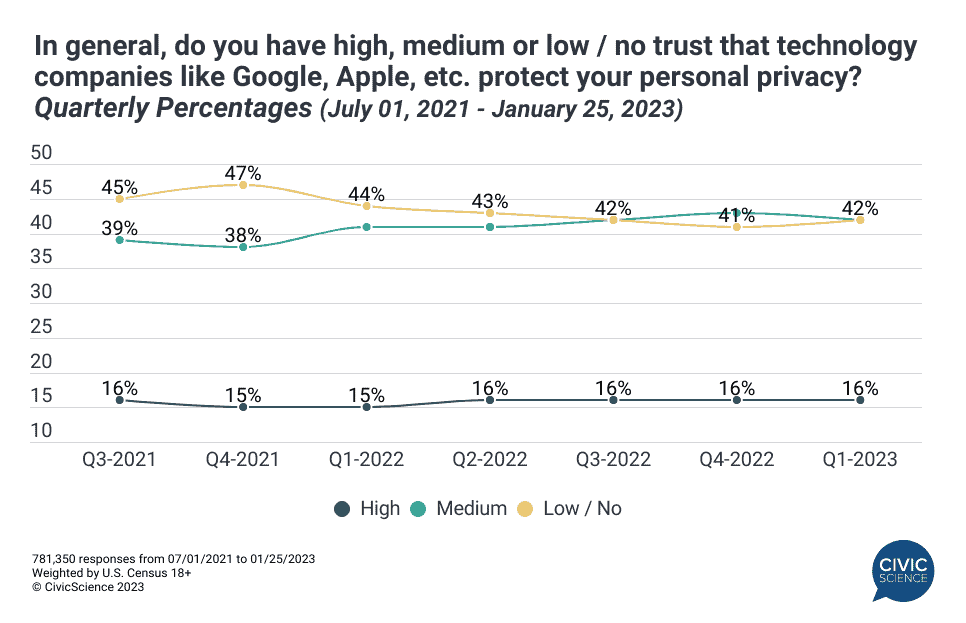
Anticipated restaurant spending has seen a nice rebound since Christmas. After declining restaurant sales and traffic in December, Americans are reporting intent to dine out at levels we haven’t seen since last May. Naturally, intent to spend on toys, hobbies, and gifts has fallen even more dramatically (which always happens after the holidays). Also, in our 3 Things to Know this week, we looked at the 20% of U.S. adults who’ve already bailed on their New Year’s resolutions, and overall concerns around credit card theft.
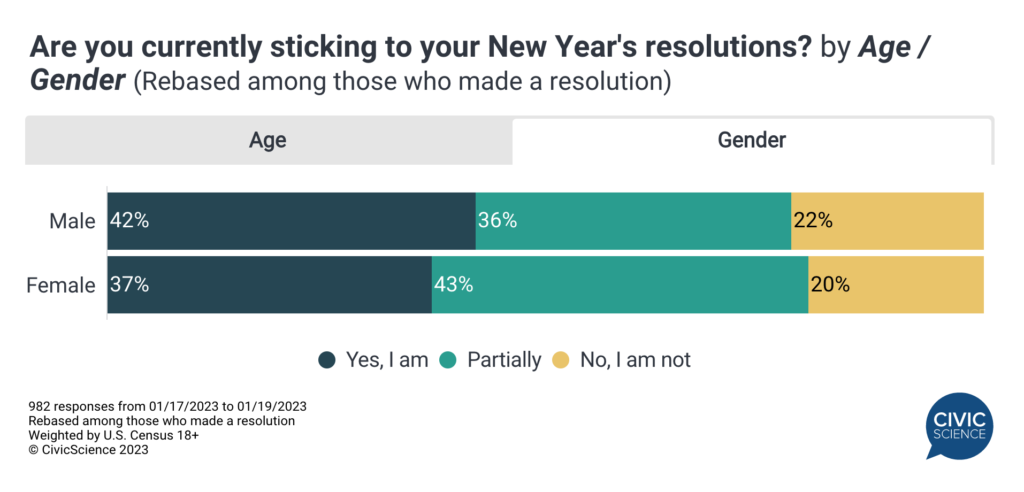
Young remote workers are the unhappiest and least secure in their jobs. Overall job satisfaction in the U.S. is holding pretty steady, after some peaks late last summer and lows last spring. Remote workers report having the worst work-life balance, despite being more likely to say they’re better off financially than they were before the pandemic. Eighty percent of remote Baby Boomers, conversely, say they’re happy in their jobs. Ironically, when asked why they’re searching for a new job, remote workers are by far more likely to say they’re looking for even more flexibility and over 3X more likely than in-person workers to be seeking more job security. Sounds nice.
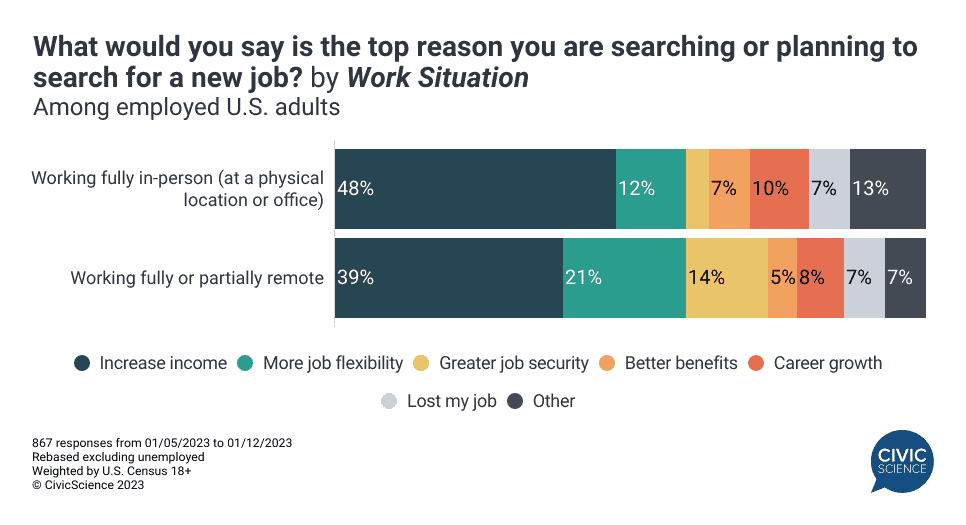
A full 40% of Americans say they are very likely to get an annual COVID booster, also only 40% of Americans say they are very likely to get an annual COVID booster. The prevailing medical community seems to have lost the PR battle on this one, with the majority of U.S. adults now saying they aren’t very likely to get an annual coronavirus vaccine, as the FDA has proposed. Baby Boomers are the most likely, either because they know they’re the most at risk or they still cling to some degree of institutional trust. Gen Z is split. Gen Xers are the least likely (see: institutional distrust).
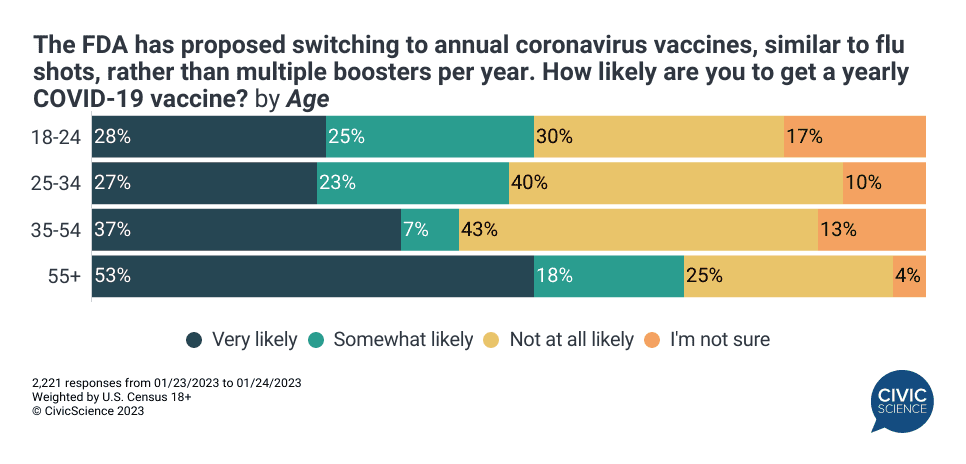
Phone calls keep dwindling and dwindling. I wrote about declining friendships last week, so I won’t beat a dead horse, even though this follow-up study reinforces the troubling trend (less than half of adults – 43% – socialize with their friends in person on a daily or weekly basis). What I’ll call out, though, is the extent to which texting is steadily supplanting phone calls as the primary way people stay in touch with friends and family. Nobody is probably surprised to hear this is a secular trend, however, the extent to which it’s grown in just the past 18 months is remarkable.
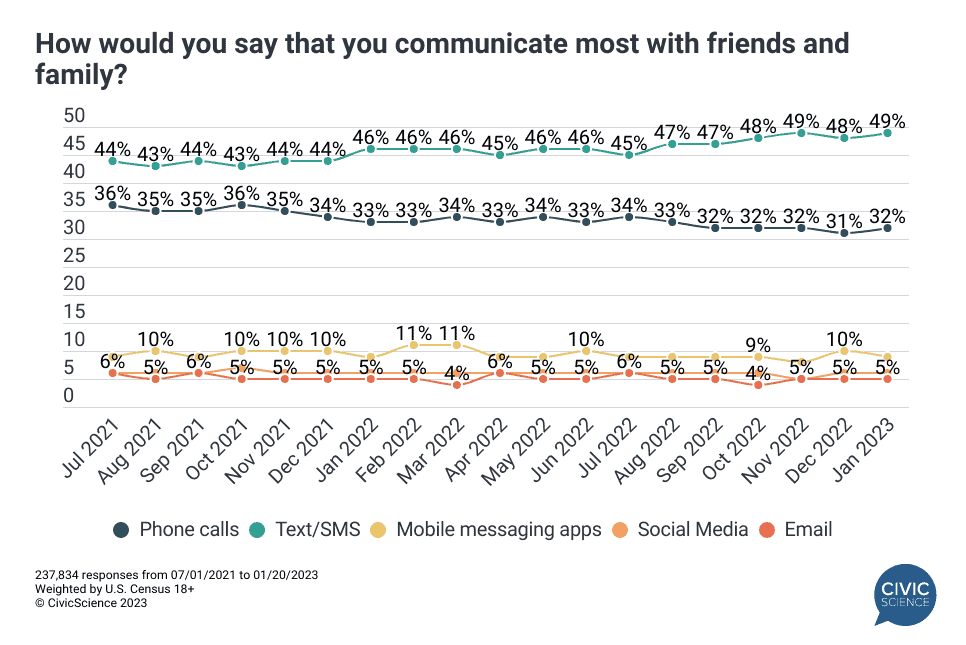
Dunkin’ customers have a far better personal financial picture right now than Starbucks customers do. Our latest – free – Brand 360 Report looked at the trending differences between Starbucks and Dunkin’ drinkers, finding some surprising differences between the two. Despite being commonly viewed as the more aspirational brand, Starbucks customers are decidedly less financially secure, at the moment – though a bit more optimistic about the future. We compared them across a number of other dimensions too, e.g. Starbucks people are way more likely to stream Amazon Prime.
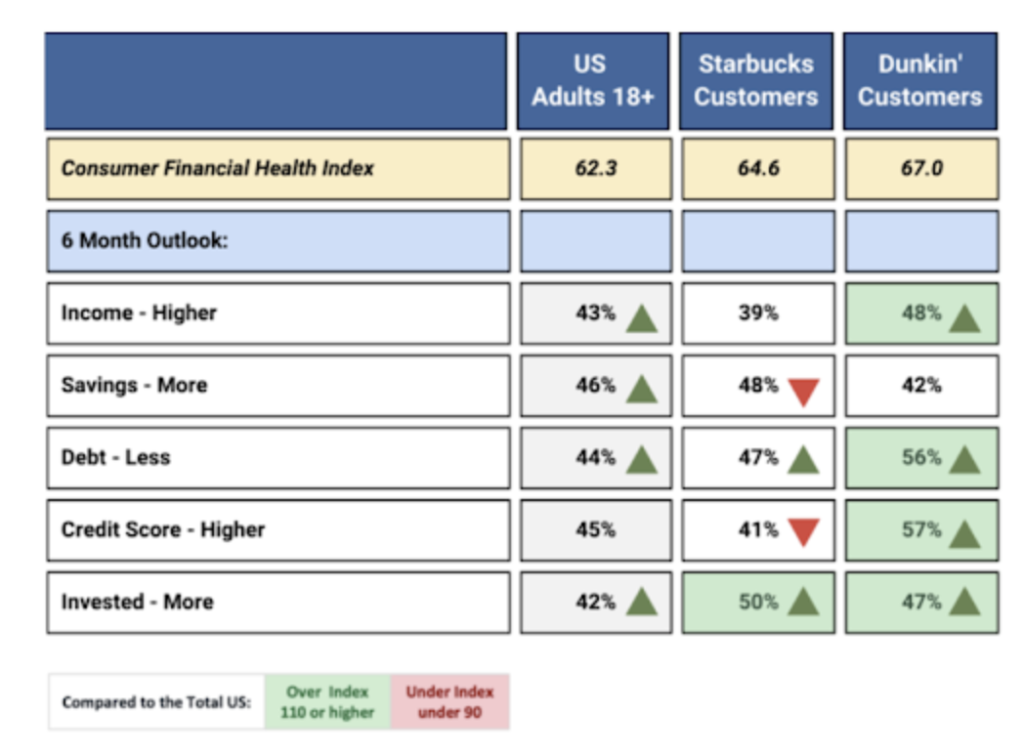
More from the super-busy CivicScientists this week:
- Speaking of coffee, Gen Z ranks Peet’s Coffee as their favorite brand;
- One-third of Americans are eating eggs less often because, well, you know;
- A plurality of streaming households now subscribe to 3 or more services, and Paramount+ is on the move;
- Chick-fil-A is still crushing the chicken sandwich wars.
The most popular (still human-generated) questions this week:
- Would you crash a wedding if given the opportunity?
- How much joy do you find in cooking?
- In terms of frequency, do you think restaurants and businesses in the US currently ask customers to tip their employees too much, not enough, or the right amount?
- Do you think it’s OK for a parent-to-be to be upset after learning the sex of their unborn child was not what they would have preferred?
- Would you rather have your own funeral be more about celebrating your life or mourning your death?
Answer Key: Hell yeah; Nearly endless; Not enough, what’s the harm in asking?; Feelings are feelings, but no; Seriously, who the hell says “mourning”?
Hoping you’re well.
JD








